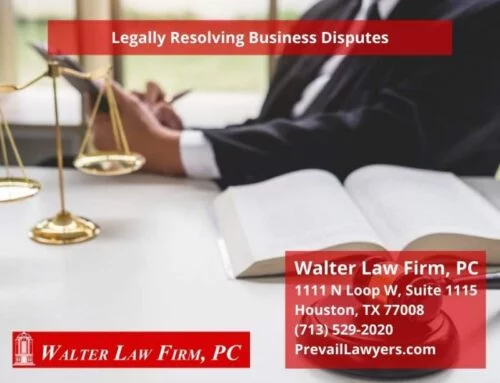Real estate is land and anything permanently attached to the land. So a house is real estate,
but so is the tree in the yard, the fence, the driveway, and the covered patio you added last year.
Real estate is also called real property; personal property is anything that is not permanently
attached to the land, such as furniture, livestock, most appliances, and most mobile homes.
For most people, the only real property they own is their home, which is also their biggest
single asset. Therefore, it’s important to know what not to do when buying or selling real property,
in order to avoid creating title problems. Here are five of the most common ways that we see
people cause themselves title problems that are far more expensive to fix than it would have been
to consult a lawyer.
1. Use of Quit Claim Deeds. Many people wrongly believe that they can transfer title to
property by using a quit claim deed. However, in Texas, a quit claim deed transfers only the grantor
(seller’s) interest in the property, not title to the property itself. Therefore, when the buyer later
tries to sell the property, they find that they don’t own it. The seller may be long gone, and clearing
up this problem may require a law suit, which is thousands of dollars more expensive than it would
have been to simply have a proper deed prepared by a lawyer.
2. Transfers to Spouses. Newly married couples often want to transfer interest in the house
owned by one of them before marriage to the other. This is almost always a bad idea, and
detrimental to the spouse that owned the property before the marriage. Property owned before
marriage is separate property, and in the event of a divorce, cannot be divided by the court. Once
an interest in the house is given to the other spouse, the house usually becomes ½ the separate
property of each of them. Worse, if done incorrectly, title to the whole house may be lost.
3. Failure to Probate. People often believe that they have inherited property, but never bother
to either probate the will, or have an heirship proceeding done to transfer title. The result may be
that dozens of relatives may have an interest in the property, making it impossible to sell without
the cooperation of all of them, and inevitably one person gets stuck with the taxes, insurance an
maintenance costs – not always the person living in the house. Seriously, no one gets along well
enough with their relatives that they should be sharing title with more than one of them! It’s much
less expensive to go through a probate/heirship proceeding for inherited property promptly.
4. Buying Property without Receiving a Deed. These situations usually fall into two catagories –
either a Contract for Deed (sometimes called “rent to own”) or a purchase “subject to” an existing
mortgage. Both are popular with realtors who want to sell a property to a buyer who cannot qualify
for a mortgage, and both are almost invariably a terrible deal for either the buyer or seller.
5. Advice from Unqualified Professionals. We’ve handled cases where a Realtor, CPA or
Business Broker tried to transfer title to property, which is usually going to end badly. Realtors are
fully capable of preparing contracts for the sale or rental of property, but are not legally able to
prepare deeds or other legal documents related to the title to the property. A CPA can advise you
about the tax consequences of a transaction, but is also prohibited from practicing law, so they
can’t prepare deeds or advise you about title issues either. Finally, business brokers often fail to
recognize the different issues involved in transferring title to real property, as opposed to
transferring title to furniture, equipment, customer lists, and other personal property used in
running a business.
If you are buying or selling real property, using a Realtor to prepare the contract, and a title
company to close the transaction, a lawyer is usually not be necessary. If the transaction is at all
unusual, or if you have questions or doubts about the situation, a consultation with a lawyer may
be the most valuable thing you do to protect yourself.
In future articles, we will discuss each of these scenarios in more detail. For now, know that
if you’re dealing with title to real estate, it pays to consult an attorney. If you know of anyone that
is involved in a title dispute, or that needs help clearing title to real estate, call your favorite lawyer,
because it Feels Good To Prevail!






